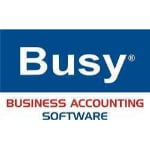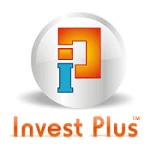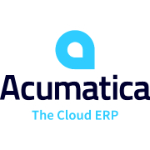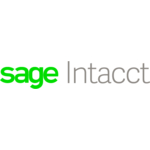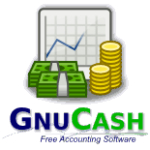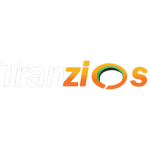TechnologyCounter provides genuine, unbiased real user reviews to help buyers make informed decisions. We may earn a referral fee when you purchase through our links, at no extra cost to you.
List of 15 Best Finance Management Software
Showing 1 - 15 of 127 productsCaptainBiz is a software designed to streamline your business operations and elevate your success. With its user-friendly interface features, CaptainBiz empowers businesses of all sizes to efficiently manage tasks, increase productivity, and achieve...Read CaptainBiz Reviews
Expenseout is a perfect solution for managing all your business expenses effortlessly! With Expenseout, you can easily track, categorize, and report your expenses in just a few clicks. Say goodbye to manual spreadsheets and complicated accounting pro...Read Expenseout Reviews
FreshBooks account management software simplifies your financial responsibilities and ensures speedy and safe performance. Easily generate invoices, monitor time, and record expenses within minutes. We are dedicated to delivering exceptional customer...Read FreshBooks Reviews
Busy Accounting Software is a solution for all your financial management needs. With its user-friendly interface features, Busy streamlines your accounting processes and helps you stay on top of your finances. Say goodbye to tedious tasks and hello t...Read Busy Accounting Software Reviews
Invest Plus is a investment management software that simplifies your financial planning and empowers you to make informed decisions. With its user-friendly interface features, Invest Plus streamlines the investment process and helps you achieve your...Read Invest Plus Reviews
ProfitBooks is an efficient and speedy business accounting tool designed for small enterprises. It enables you to generate visually appealing invoices, monitor expenses, and handle inventory, even if you lack an accounting background...Read ProfitBooks Reviews
MProfit, a powerful software designed to simplify your financial management tasks. With user-friendly features and innovative solutions, MProfit helps you effortlessly track and organize your investments and expenses. Stay on top of your finances wit...Read MProfit Reviews
Acumatica is a highly adaptable and user-friendly cloud-based business management solution designed to streamline and optimize operations for modern businesses. With its robust features and flexible platform, Acumatica empowers companies to achieve g...Read Acumatica Reviews
Sage Intacct is a financial statement software designed for small and medium-sized companies that operates on cloud technology. Sage Intacct comprehensive features enable automatic handling of crucial finance and accounting processes while providing...Read Sage Intacct Reviews
GnuCash is an efficient financial management software designed for individuals and small businesses. With its user-friendly interface and powerful features, GnuCash simplifies the task of managing finances, budgeting, and tracking expenses. From trac...Read GnuCash Reviews
BeyondSquare Financial Management System is a software designed to streamline financial processes and optimize resource management. With user-friendly features and a seamless interface, it empowers businesses to make data-driven decisions and achieve...Read BeyondSquare Financial Management System Reviews
Epicor Financial is a financial management solution designed to streamline and optimize your businesss financial processes. With advanced features and robust capabilities, Epicor Financial empowers businesses to make informed decisions, increase effi...Read Epicor Financial Reviews
Portfolio Vista is a tool for managing your investments. With user-friendly interface and powerful features, this software simplifies the tracking, analysis and reporting of your portfolio. Streamline your investment process and make informed decisio...Read PORTFOLIO VISTA Reviews
MediSteer is a leading software solution designed for the healthcare industry. Developed with a deep understanding of the complex and dynamic needs of healthcare organizations, MediSteer streamlines processes, improves efficiency, and enhances patien...Read MediSteer Reviews
Tranzios is a solution for streamlining your business processes. From managing data and automating tasks, to enhancing collaboration and improving efficiency, Tranzios offers a seamless is a software for every aspect of your business needs. With its...Read Tranzios Reviews
- What Is Finance Management Software?
- Top Reasons Why Businesses Need Finance Management Software?
- What Are the Top Key Features of Finance Management Software?
- What Are the Top Benefits of Finance Management Software?
- What Are the Steps to Choose the Right Finance Management Software?
- What Are the Types of Finance Management Software for Different Industries?
- What Are the Technology Trends for Best Finance Management Software?
- What Are the Deployment Options for Finance Management Software?
What Is Finance Management Software?
Finance Management Software is a set of technologies used to help firms manage their financial activities. It can assist track income, expenses, earnings, and losses, and can provide a better sense of overall financial health.
This type of software can also help construct budgets, prepare for future costs, and generate financial reports.It can give data for stock market analysis and forecasts, and it can also help to limit risk by assessing the financial characteristics of different assets.
Finance Management Application is user-friendly and can be modified to match the demands of any sort of organization, from small to large. It can also help to ensure compliance with accounting standards and legislation. In brief, Finance Management Software is crucial for organizations of all sizes to track and evaluate their finances and plan for future investments.
Top Reasons Why Businesses Need Finance Management Software?
1. Streamlining accounting processes: Finance management software enhances efficiency and effectiveness in the accounting domain through the automation of many operations, including accounts receivable and accounts payable administration, as well as the generation of comprehensive financial reports, among other functionalities.
2. Improved accuracy: The finance management application enhances accuracy and minimizes errors and discrepancies by eliminating the need for human data entry and offering real-time data.
3. Accessibility: Finance management software enables firms to conveniently access financial data from any place, thereby facilitating remote cooperation and informed decision-making.
4. Cash flow management: Finance management tools plays a crucial role in facilitating firms' ability to predict cash flow and monitor financial activities, so enabling them to make informed and prudent financial choices.
5. Budgeting and forecasting: The finance management application enables organizations to efficiently monitor their financial resources, project their expenditures, and strategize for forthcoming periods.
6. Auditing: Finance management solutions facilitate the management and auditing of financial data, hence enhancing the efficiency and precision of the auditing process.
7. Risk management: Finance management software has the capability to monitor and analyze financial data, enabling firms to detect and mitigate potential risks through appropriate measures.
8. Automated payroll: The finance management application streamlines payroll processes by automating functions such as the computation of employee salaries and the facilitation of fund transfers. This automation not only removes the need for manual data entry but also significantly mitigates the potential for errors.
9. Real-time financial data: The best finance management software offers up-to-date financial information, thereby providing organizations with vital insights to help their decision-making processes.
10. Automated bank reconciliation: Finance management solutions streamlines the bank reconciliation process by automating it, hence enhancing precision and minimizing the need for manual data input.
11. Improved security: An online finance management system enables firms to exercise control over the individuals who are granted access to financial information, thereby enhancing security measures and mitigating the likelihood of a data breach.
12. Tax filing: The finance management application streamlines the tax filing process, enhancing precision and aiding firms in adhering to tax deadlines.
13. Consolidated data: The utilization of finance management solutions facilitates the consolidation of financial data derived from many sources, hence simplifying the process of analysis and management.
14. Cost reduction: Finance management software effectively removes the necessity of manual data entry, thereby resulting in a reduction of labor costs.
15. Streamlined invoicing: Finance management tools enables organizations to efficiently generate, monitor, and administer customer invoices, hence optimizing their accounts receivable procedures.
What Are the Top Key Features of Finance Management Software?
The primary essential characteristics of Finance Management Software encompass
1. Automated Reconciliation: This software automates the laborious process of balancing accounts. The implementation of this method contributes to the mitigation of time, financial expenses, and inaccuracies that are commonly linked with manual procedures.
2. Budgeting & Planning: A financial management system facilitates the ability of users to generate, track, and evaluate budgets, so enhancing their understanding of forthcoming expenditures and revenue.
3. Cash Flow Forecasting: Cash flow forecasting is an essential element of a financial management solution as it enables users to effectively predict forthcoming cash flow and guarantee the availability of funds necessary for investments or business operations.
4. Financial Reporting: Ensuring the accuracy, timeliness, and coherent presentation of financial data constitutes a primary objective within the realm of finance departments. Finance management software has the capability to provide financial reports that are both timely and accurate, so guaranteeing that managers are equipped with a clear understanding of the financial well-being of the organization.
5. Tax Compliance: The process of monitoring and adhering to evolving rules and tax filing requirements can be a laborious undertaking. However, the implementation of a online finance management system obviates the necessity for manual processing, thereby streamlining operations, reducing time expenditure, and mitigating tax liabilities.
6. Payment Processing & Security: The implementation of a financial management system should prioritize the establishment of an efficient, safe, and secure framework that enables users to effectively initiate and receive payments.
7. Accounts Payable & Receivable: The use of automated systems for tracking and recording payments plays a crucial role in maintaining precise and reliable bookkeeping records of financial transactions.
8. Expense Tracking & Invoicing: The importance of accuracy is evident in the context of spending and bills. The use of an online finance management system for expense tracking and invoice generation has the advantage of error elimination and time efficiency.
9. Data Visualization & Dashboards: Data visualization plays a crucial role in the realm of financial management, as it empowers users to visually see and comprehend essential performance indicators, hence facilitating the process of making well-informed decisions.
10. Risk Analysis: The capacity to evaluate risks, recognize prospective challenges, and strategize accordingly equips firms with the necessary information to safeguard their financial performance.
What Are the Top Benefits of Finance Management Software?
1. Streamlined and Automated Accounting: Finance management software is a valuable tool that aids in the optimization and automation of accounting procedures, hence enhancing a business's ability to efficiently process transactions and promptly provide precise results. The implementation of this solution effectively decreases the duration and exertion involved in accounting activities, concurrently mitigating the occurrence of human mistakes.
2. Improved Cash Flow Management: The finance management application enables firms to effectively monitor and control their cash flow, hence facilitating the identification and proactive mitigation of any future cash flow challenges. This enables enterprises to enhance their cash reserve planning and management capabilities, as well as facilitate budgeting for forthcoming acquisitions.
3. Automated Financial Reports: Automated financial reports enable organizations to obtain a current and comprehensive overview of their financial status with no exertion. Automated reporting facilitates enhanced analysis of patterns, trends, and financial insights for firms, so enabling them to make strategic adjustments in response.
4. Increased Visibility: Finance management software provides businesses with enhanced visibility into their financial operations, enabling them to effectively monitor the movement of funds in and out of their organization with greater accuracy. This process aids finance teams in the identification and rectification of any issues pertaining to the utilization of funds, hence ensuring the proper allocation of budgetary resources.
5. Easy Compliance: Finance management solutions play a crucial role in ensuring adherence to legal and regulatory requirements pertaining to financial matters. One illustrative instance involves the capacity of finance teams to conduct assessments on prospective investments in order to ascertain their adherence to prevailing laws and regulations.
6. Improved Security: Through the implementation of automated systems, finance teams are able to securely store and retrieve sensitive financial data, hence reducing the likelihood of a breach occurring. Finance management application enables firms to use two-factor authentication as an additional security measure for accessing their financial information, thereby significantly mitigating the potential dangers associated with unauthorized access.
What Are the Steps to Choose the Right Finance Management Software?
1. Assess your goals and needs for the software: Commence the evaluation of your enterprise and its financial objectives, encompassing the identification of the most appropriate financial management software that aligns with your requirements. Compile a comprehensive inventory of one's financial objectives and necessities, encompassing tasks such as bookkeeping, payroll management, accounting, and reporting.
2. Compare features and functions: Conduct an investigation on the characteristics and functionalities of several online finance management system packages that are now accessible in the industry. These features are designed to align with your financial requirements and facilitate the achievement of your objectives. When doing a comparative analysis of various software types, it is essential to take into account several key factors, including the user interface, data entry procedures, reporting functionalities, automation capabilities, and integration capabilities.
3. Read reviews and testimonials: The inclusion of testimonials and evaluations from both current and past users can offer valuable perspectives on the usability and efficacy of the financial management software. Additionally, it can aid in the process of limiting down one's selections.
4. Set a budget: It is imperative to take into account the financial implications associated with the acquisition of financial management software prior to reaching a decision. To commence, it is advisable to establish a financial plan and do a comprehensive analysis of pricing offered by various vendors.
5. Try the software: Many financial management software packages include trial periods and free versions to enable users to thoroughly evaluate the software using authentic data. Take use of this chance to check that the program aligns with your requirements and to enhance your comprehension of its functionality.
6. Speak to customer support: Lastly, engage in communication with customer support employees in order to ascertain whether they possess the capacity to offer supplementary perspectives and information regarding the product. It is vital to ascertain the vendor's customer service history, ensuring it is commendable, and that they possess the capability to promptly and effectively address any inquiries you may pose.
What Are the Types of Finance Management Software for Different Industries?
1. Retail: The finance management software is a specialized tool developed for retail enterprises, primarily employed to facilitate transaction processing, inventory management, customer purchasing trend monitoring, and analysis of consumer buying patterns.
2. Banking and finance: Banking and finance management solutions facilitate the effective administration of credit risk, automated account reconciliation, enhanced client relations, and comprehensive analysis of sales patterns for financial organizations.
3. Insurance: Insurance financial management software is a valuable tool utilized by insurance businesses to effectively manage customer policies, accurately calculate premiums, and provide reliable forecasts regarding claims.
4. Healthcare: Healthcare financial management software facilitates the optimization of billing and reimbursement processes, mistake reduction, and enhancement of operational efficiency for healthcare providers and payers.
5. Manufacturing: The utilization of manufacturing finance management tools enables industry participants to effectively oversee their financial operations, monitor and evaluate inventory, and enhance the efficiency of procurement cycles.
6. Professional services: Professional services finance management software is designed to aid service providers in effectively managing various aspects of their financial operations. This includes tasks such as client administration, billing and invoicing, payment tracking, and financial analysis.
7. Government: Government finance management application facilitates the effective administration of tax compliance, budgeting, forecasting, financial audits, and other related functions within government agencies.
8. Education: Education finance management software streamlines the process of tuition payment processing, monitors and manages financial aid requests, and guarantees adherence to governmental rules.
What Are the Technology Trends for Best Finance Management Software?
The prevailing technological advancements in the realm of the best finance management software encompass
1. Automation: Automation has emerged as a prominent characteristic in numerous financial management software systems, enabling users to streamline various procedures like finance transactions, investment tracking, budgeting, and other related activities. Automated systems exhibit enhanced precision and provide superior levels of accuracy and scalability in comparison to manual operations.
2. Artificial Intelligence: The utilization of artificial intelligence is progressively expanding in order to furnish sophisticated analyses of financial performance and deliver prognostications regarding future trends. Numerous finance management tools have currently integrated artificial intelligence (AI) technology into their platforms, aiming to assist users in making well-informed decisions.
3. Cloud Computing: Cloud computing technologies give organizations with the capacity to scale and adapt their computer resources as needed. In the realm of finance management tools, many solutions are leveraging cloud technologies to ensure secure access to data and applications for users, regardless of their geographical location.
4. Big Data: The utilization of big data has brought about a significant transformation in the financial sector, enabling the acquisition of valuable insights to enhance decision-making processes and get a comprehensive understanding of resource allocation priorities. Contemporary finance management software solutions have begun integrating big data technologies in order to enhance their understanding of the operational efficiency and effectiveness of diverse financial systems.
5. Security: The protection of user data from potential attacks is of utmost importance in the realm of financial management. Consequently, finance management application are currently integrating cutting-edge security technology to prioritize security.
What Are the Deployment Options for Finance Management Software?
The selection of deployment methods for finance management software is contingent upon the particular software packages and their intended applications. In the realm of deployment options, a range of alternatives exists, encompassing on-premise, cloud-based, and hybrid solutions.
On-premises solutions entail the installation of software on a centralized server located within an organization, where data is subsequently stored and processed on the premises. This alternative necessitates the procurement and upkeep of hardware by the business, as well as the management of both the software and the corresponding infrastructure.
Cloud-based solutions involve the storage of data and applications in an off-site web platform, such as Microsoft Azure, Amazon Web Services, or Google Cloud Platform. This strategy obviates the necessity for physical storage and hardware infrastructure on the premises, as it leverages the cloud-based system provided by the service provider.
Hybrid solutions encompass a fusion of features derived from both on-premise and cloud-based solutions. In recent years, there has been a notable increase in the use of this particular method, wherein organizations are choosing to retain their more sensitive data on their premises, while transferring less important data and apps to a cloud-based platform.
Regardless of the chosen deployment approach, it is imperative for firms to engage in thorough planning, testing, and deployment of the software to guarantee its appropriate use and integration.



